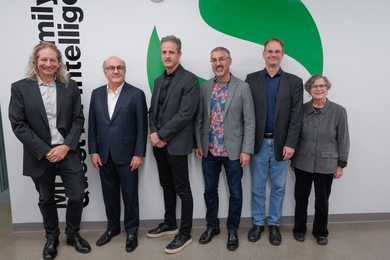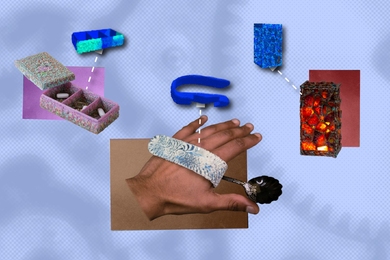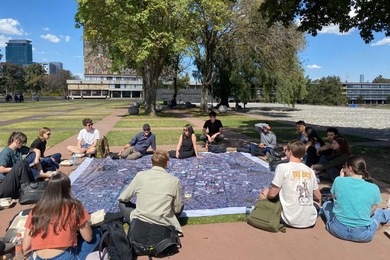In an all-around positive, hour-long meeting on Feb. 16 in the Stata Center, the faculty heard discussion on three brand-new programs, all of which were met with excitement, laughter and good cheer.
The faculty voted unanimously to approve the new S.B. in biological engineering. The S.B. marks the first completely new undergraduate course of study in 29 years; it was greeted with thunderous applause by the roughly 60 faculty members present.
The new program will teach engineering entirely in the context of biology. Nine new subjects were developed for the course. Linda Griffith, professor of mechanical and biological engineering and chair of the biological engineering undergraduate program committee, presented the proposal at the Dec. 15 faculty meeting.
Professor J. Kim Vandiver of mechanical engineering presented the proposal for a new S.B. in mechanical and ocean engineering. After the Department of Mechanical Engineering and the Department of Ocean Engineering merged on Jan. 1, the new S.B. was unanimously approved by the faculty of both departments. The new S.B. offers an opportunity to "reincarnate the degree in a new way," Vandiver said.
The new S.B. in mechanical and ocean engineering would meet the department's main goals, he said. It will preserve the ocean engineering identity at MIT while attracting a greater number of students because the degree also will be in mechanical engineering. The subjects are expected to have adequate enrollments, and the former ocean engineering faculty will become engaged in the teaching of core subjects in the Department of Mechanical Engineering. "We see this as a win-win situation," said Vandiver.
The track for a student hoping to earn an S.B. in mechanical and ocean engineering is "not terribly different than any other engineering road map," said Vandiver. Students would take 15 subjects beyond MIT's General Institute Requirements and be able to choose two electives from a restricted list.
Students currently enrolled in the ocean engineering degree program will have the opportunity to take the S.B. in ocean engineering or the new degree. Thus far, one or two of the five juniors and one of the five sophomores are considering switching to the new program, Vandiver said.
Dean of Engineering Thomas L. Magnanti assured the faculty that the new S.B. had "strong support on behalf of the School of Engineering."
Faculty will have the chance to vote on the proposal at the March 16 faculty meeting.
The faculty also heard from Jeffrey Meldman, director of undergraduate programs at the Sloan School and associate dean in the Office of the Dean for Undergraduate Education, regarding the new Sloan School of Management undergraduate minor in management, which has already been approved.
Calling it the "third innovation of the day," Meldman gave an overview of the new minor, which will start in fall 2005. Initial enrollment will be limited to 100 undergraduates a year, due to the anticipated high demand, said Meldman. After the four-year phase-in period Sloan hopes to offer the course through an open-door policy, he said. He expects between 200-300 undergraduates to opt for the minor each year.
"This is a highly valuable complement to MIT undergraduate degrees," Meldman said.
A version of this article appeared in MIT Tech Talk on March 2, 2005 (download PDF).





